En el dinámico panorama del comercio internacional, la demanda de transporte de maquinaria pesada, como excavadoras pequeñas, de China a Rusia ha experimentado un crecimiento sustancial. A medida que el comercio bilateral entre China y Rusia continúa prosperando, alcanzando un récord de 240.110 millones de dólares en 2024, según la Administración General de Aduanas de China, las empresas y fabricantes buscan cada vez más soluciones logísticas fiables, rentables y seguras. Este artículo profundiza en el complejo proceso de envío de excavadoras pequeñas, abarcando los métodos de transporte, la optimización de rutas, el despacho de aduanas, la gestión de costes y la mitigación de riesgos, y ofrece una hoja de ruta detallada para un transporte transfronterizo sin contratiempos.
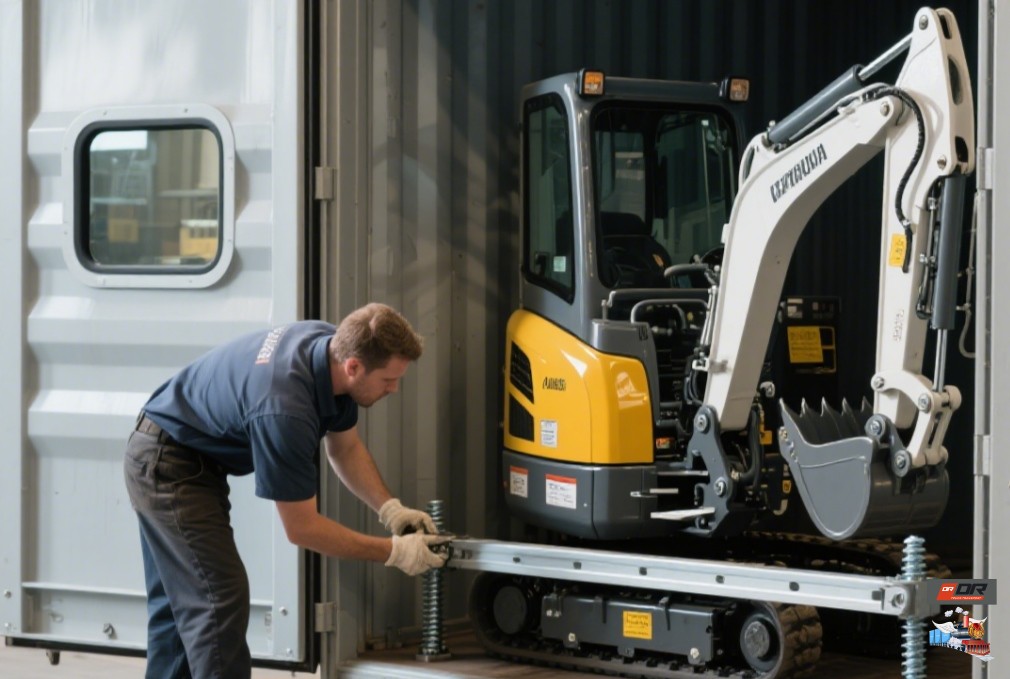
Las excavadoras pequeñas, que suelen pesar entre 1,5 y 8 toneladas, plantean desafíos logísticos específicos debido a su tamaño, peso y complejidad mecánica. Estas máquinas suelen requerir un manejo especializado para evitar daños durante el transporte, incluyendo un embalaje seguro, equipos de carga y descarga adecuados y el cumplimiento de las normas internacionales de seguridad. Además, el transporte transfronterizo a Rusia implica la gestión de diversos marcos regulatorios, procedimientos aduaneros y diferencias en la infraestructura regional, por lo que es esencial asociarse con proveedores de logística experimentados y familiarizados con el corredor comercial China-Rusia.
- Clasificación de productosAsegúrese de que la excavadora esté correctamente clasificada según el código del Sistema Armonizado (SA), que para maquinaria de construcción suele corresponder al SA 8429.30.00. Esta clasificación afecta los derechos de aduana, los impuestos y los requisitos de documentación.
- Cumplimiento normativoRusia exige el cumplimiento de las regulaciones técnicas de la Unión Económica Euroasiática (UEE), como la TR EAEU 010/2011 sobre seguridad de las máquinas. La obtención de un certificado de conformidad de la UEE es indispensable para el despacho de aduanas.
- Cobertura de seguroDado el alto valor de las excavadoras, es crucial contar con un seguro de carga integral que cubra daños durante el tránsito, robo o demoras.
La elección del medio de transporte adecuado depende de factores como el presupuesto, el tiempo de entrega y las características específicas de la carga. A continuación, se presenta una comparación detallada de las principales opciones:
El transporte ferroviario se ha convertido en la opción preferida para la maquinaria pesada debido a su equilibrio entre costo, capacidad y confiabilidad, especialmente a lo largo de las rutas del Ferrocarril Expreso China-Europa.
- Eficiencia de costos:Las tarifas del transporte ferroviario de mercancías desde China a Rusia son considerablemente inferiores a las del transporte aéreo y comparables a las del transporte marítimo para destinos sin litoral.
- Gran capacidad:Cada tren de carga puede transportar hasta 50 contenedores, ideal para enviar múltiples excavadoras o cargas combinadas.
- Estabilidad temporalLos horarios regulares en rutas como el Ferrocarril Expreso China-Rusia (por ejemplo, Xi'an-Moscú) garantizan tiempos de tránsito de 25 a 30 días, mucho más rápido que el transporte marítimo y más predecibles que el transporte por carretera en condiciones climáticas adversas.
- Corredor Oriental:Paso fronterizo de Manchuria-Zabaikalsk, con servicio a destinos como Moscú, Ekaterimburgo y Novosibirsk.
- Corredor Occidental:El cruce fronterizo de madera de Khorgas, que conecta con Asia Central y Rusia a través de Kazajstán, es adecuado para envíos a ciudades del sur de Rusia como Astracán.
Estimado transporte ferroviario se especializa en logística ferroviaria, ofreciendo soluciones de carga de contenedor completo (FCL) y carga parcial (LCL), con seguimiento GPS y sellado seguro de contenedores para proteger la maquinaria durante el tránsito.
El transporte por carretera, en particular bajo el Convenio TIR (Transports Internationaux Routiers), ofrece una flexibilidad inigualable para envíos a zonas remotas o cuando se requiere una entrega en la última milla.
- Servicio puerta a puerta:Entrega directa desde instalaciones de fabricación en China (por ejemplo, Jiangsu, Shandong) a destinos rusos sin transbordo, lo que reduce los riesgos de manipulación.
- Eficiencia aduanera: TIR Los documentos permiten cruces fronterizos sin problemas con una única inspección aduanera, ahorrando tiempo de despacho en comparación con el transporte de mercancías por carretera tradicional.
- Adaptabilidad:Adecuado para lotes pequeños o envíos urgentes, con tiempos de tránsito de 8 a 12 días para rutas principales como Beijing-Moscú a través del cruce fronterizo de Erenhot.
- Restricciones de peso:Las regulaciones viales rusas limitan las cargas útiles de los camiones, lo que requiere una planificación cuidadosa de la carga para múltiples excavadoras.
- Desafíos estacionales:Las condiciones invernales en Siberia pueden causar retrasos, lo que hace necesarias medidas anticongelantes y ajustes de ruta.
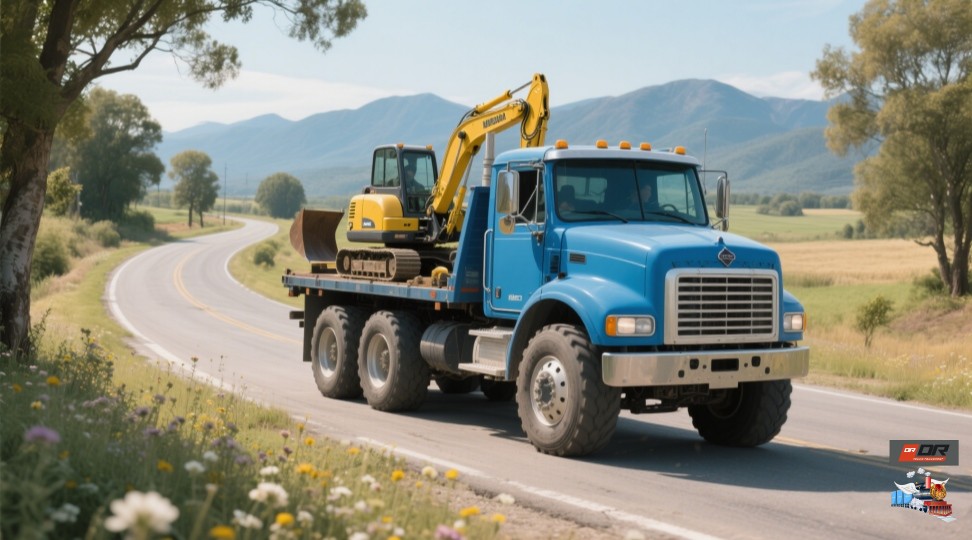
Al combinar el transporte ferroviario, por carretera y, ocasionalmente, marítimo, las soluciones multimodales ofrecen una eficiencia optimizada para cadenas logísticas complejas. Por ejemplo:
- Ferrocarril + Carretera:Las excavadoras se transportan por ferrocarril a un centro como Almaty (Kazajstán) y luego por carretera a ciudades rusas en Asia Central.
- Mar + Ferrocarril:Para los puertos del sur de Rusia, como Novorossiysk, el transporte marítimo se realiza desde los puertos orientales de China (Shanghai, Qingdao) a Novorossiysk, seguido del ferrocarril a destinos del interior.
El transporte multimodal reduce los costos entre un 10 y un 15% en comparación con las opciones puramente aéreas o terrestres, manteniendo tiempos de tránsito aceptables.
Una planificación eficaz de rutas depende de la comprensión de la infraestructura regional y la dinámica fronteriza. Las principales rutas comerciales para excavadoras pequeñas incluyen:
- Puertos clave: Manchuria (China), Zabaikalsk (Rusia)
- Tiempo de tránsito:25-30 días por ferrocarril, 15-20 días por carretera
- Ventajas:Infraestructura ferroviaria bien establecida, alta capacidad para carga pesada, ideal para envíos al centro y norte de Rusia (Moscú, San Petersburgo).
- Puertos clave: Khorgas (China), Madera (Frontera entre Kazajistán y Rusia)
- Tiempo de tránsito:15-20 días por ferrocarril (vía Kazajstán), 18-25 días por camión TIR
- Ventajas:Acceso a los mercados de Asia Central en ruta, adecuado para entregas al sur de Rusia (Rostov del Don, Volgogrado) y Bielorrusia.
- Puertos clave: Vladivostok (Rusia), Vostochny (Rusia)
- Tiempo de tránsito:35-45 días por vía marítima, más 5-7 días para transporte terrestre
- Caso de uso:Adecuado para pedidos al por mayor al Lejano Oriente de Rusia, aunque los tiempos de tránsito más largos lo hacen menos ideal para maquinaria sensible al tiempo.
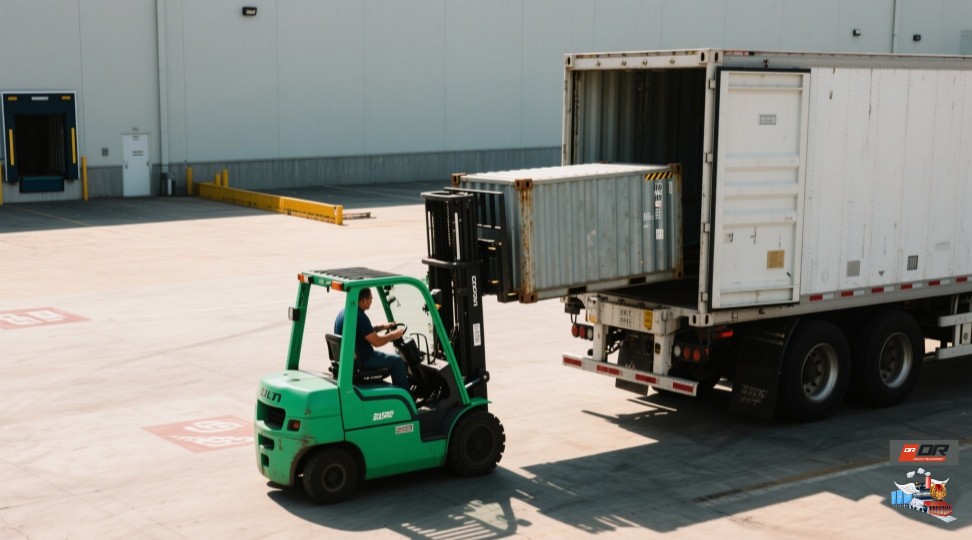
Tabla 1: Comparación de las principales rutas de transporte de China a Rusia
| Ruta | Modo de transporte | Tiempo de tránsito | Capacidad | Ideal para |
|---|
| Manchuria-Moscú | Carril | 25-30 días | Alto (FCL/LCL) | Grandes pedidos, Rusia central |
| Erenhot-Moscú | Camión TIR | 8-12 días | Medio (FTL) | Entrega urgente puerta a puerta |
| Khorgas-Astracán | Multimodal | 15-20 días | Flexible | Asia Central + Sur de Rusia |
| Shanghái-Novorossiysk | Mar + Ferrocarril | 30-40 días | Muy alto | Envíos a granel a puertos del sur |
Los trámites aduaneros son fundamentales para evitar retrasos y sanciones. Aquí tienes una guía paso a paso:
- Factura comercial y lista de empaque:Detallado con código HS, información del fabricante y valor unitario.
- Conocimiento de embarque/Guía aérea:Emitido por el transportista, especificando los términos del envío.
- Certificado de conformidad de la UEEA:Obtenido a través de un organismo ruso certificado, válido por 1-3 años dependiendo del tipo de producto.
- Certificado de seguro:Obligatorio para el despacho de aduanas en Rusia.
- Derechos de importación:Varía según la clasificación arancelaria de la UEEA (la mayoría de las excavadoras están sujetas a una tarifa estándar).
- Impuesto sobre el Valor Añadido (IVA):Se aplica sobre el valor CIF (Costo, Seguro y Flete).
- Impuesto especial:No aplicable para maquinaria de construcción, excepto motores diésel con normas de emisiones específicas.
- Codificación HS incorrectaUna clasificación incorrecta puede generar aranceles más altos o retrasos en el envío. Consulte con un agente de aduanas o un proveedor de logística para obtener una codificación precisa.
- Certificaciones incompletas:La falta de obtención anticipada del certificado de la UEEA da lugar a una retención en la aduana, con gastos diarios de almacenamiento.
Un embalaje adecuado es fundamental para evitar daños durante el transporte. Las prácticas recomendadas incluyen:
- Estructura de acero:Asegure la excavadora a un pallet de acero con almohadillas de goma antivibración, capaz de soportar altas fuerzas de aceleración.
- Protección contra la intemperie:Envuelva la máquina en una lona impermeable o en una película retráctil, especialmente para transportarla por carretera en condiciones de nieve o lluvia.
- Colocación de documentación: Coloque una etiqueta transparente con los detalles del envío y las instrucciones de manipulación en el exterior del contenedor/embalaje.
Para el transporte en contenedores, asegúrese de que la excavadora esté centrada y sujeta con correas de amarre con una capacidad de al menos 1,5 veces el peso de la carga. Dear-Railway Transport ofrece servicios profesionales de carga, cumpliendo con la norma ISO 1496-1 para carga en contenedores.
En Estimado transporte ferroviarioNos especializamos en logística integral para maquinaria pesada y ofrecemos soluciones personalizadas que garantizan que sus excavadoras pequeñas lleguen a su destino de forma segura, puntual y dentro del presupuesto. Contáctenos hoy mismo para descubrir cómo nuestra experiencia en transporte transfronterizo entre China y Rusia puede optimizar la eficiencia de su cadena de suministro.
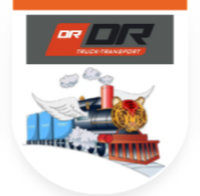













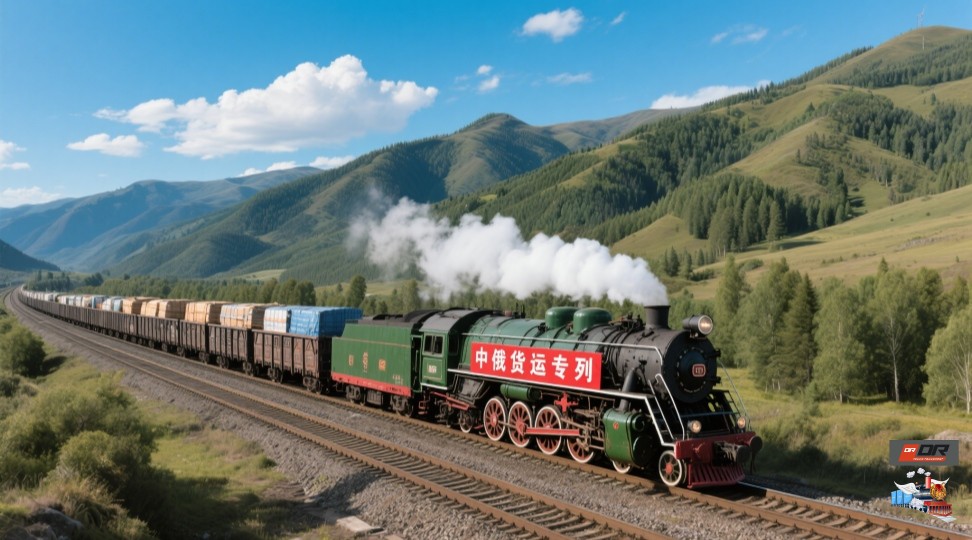



 IPv6 RED SOPORTADA
IPv6 RED SOPORTADA
